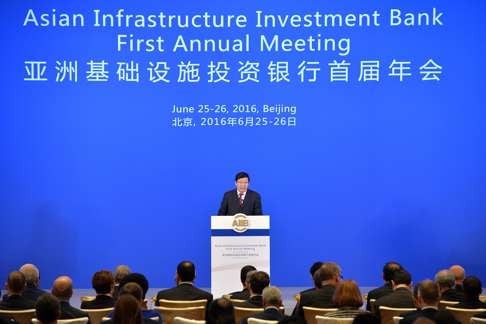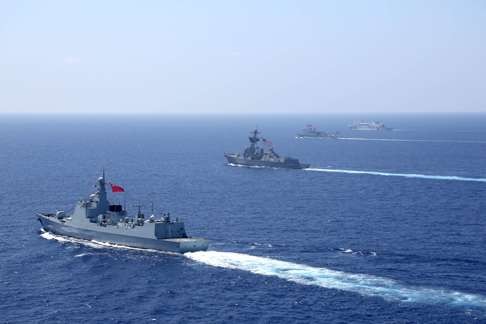
Next US president must choose to engage China, not try to contain it
Charles R. Stith says the broad framework of this important bilateral relationship should be anchored by cooperation

Over the past couple of months, I’ve been on a road trip that has taken me to the Middle East, Africa, and now Asia. Everywhere I have gone, people want to talk about the upcoming US presidential election. Everyone everywhere has, at least, the same two questions: How did Donald Trump wind up as the presumptive Republican nominee? And, can he win? Given some of Trump’s outlandish statements about building walls, barring Muslims and trade rape by China, the concern is well placed. Specific to this part of the world, the concern takes on added weight, given that, when the subject of China has been broached, the responses have provided more heat than light.
Whoever wins in November will have their hands full. One of the top items on anybody’s list will be China. Having spent more than a decade moving back and forth between the US and China as well as closely following China’s engagement in Africa, there are a few things I would suggest to the next president if the US is going to get its bilateral relationship with China right.
Rather than trying to offer a laundry list of things the US might do to recalibrate our bilateral relationship, let me suggest a framework that should inform whatever policies and programmes we might advance in the Asia-Pacific region.

First, the US needs to fashion a comprehensive and coherent framework for engaging China. For example, on the one hand, when the US calls on China to shoulder more responsibility as a global citizen and emerging power, that is the right thing to do. But, then, it is inconsistent, to say the least, for us to undermine China’s efforts to do so, as we did with the establishment of the Asian Infrastructure Investment Bank. China’s effort to further development (and stability) in the Pacific Rim is good strategy and good sense. It does not necessarily translate that if China shoulders more of the burden for development, the result will be less influence for America. For China to step up in this fashion is not only responsible, it could be a predicate for the US and China becoming true partners for progress.
Attempting to contain China, by whatever name we call it, is not weakening an opponent, it is weakening the prospects for partnership
Second, US policy in the Pacific Rim must reflect the fact that we live in a multipolar universe. The global geopolitical environment is more balanced than at any time since the end of the second world war, and most certainly since the fall of the Berlin Wall. While the US still has the world’s most dynamic economy and powerful military, the balance of power is shifting. The geopolitical environment has become far too complex to assume that the US can unilaterally act in any part of the world, much less in this region, with anything but dire consequences.
I am not suggesting that the US assume the sort of isolationist tack proposed by Trump; namely, let South Korea and Japan beef up their nuclear arsenals and things will sort themselves out. What I am suggesting is that attempting to isolate China in order to contain China is a non-starter. When it comes to the region’s cutting-edge issues, the right approach is to engage China rather than trying to contain China. Whether the issue is the South China Sea, cybersecurity, Hong Kong and human rights or Africa, at any point of crisis or contention, the sooner we engage (and the more sustained the engagement), the better.

And, while we need to reassure our allies in the Asia-Pacific region of our resolve to sustain long-standing relationships and alliances, playing both ends against the middle will not make for a more stable region or world. China is a competitor, but that doesn’t mean it has to be an adversary. Attempting to contain China, by whatever name we call it, is not weakening an opponent, it is weakening the prospects for partnership. US geostrategic interests, as well as China’s, are best served if both look for pathways to cooperation. Against the backdrop of Brexit, the US-China relationship takes on added importance in terms of sustaining globalisation and international commerce, and avoiding narrow nationalism and angry populism.
If the US changes how it engages China, it will have a lot more moral authority to coax the Beijing government
I wouldn’t be so presumptuous as to suggest that this framework is exhaustive; but it is indicative of what we need to be doing if we’re going to get China right. If the US changes how it engages China, it will have a lot more moral authority to coax the Beijing government. “Do as I do” carries a lot more weight than “do as I say”.
What I’m suggesting the US does relative to China is equally applicable to China’s engagement of its neighbours. China needs to have a more cooperative and coherent approach to engaging in the region. That North Korea is China’s one and only true “friend” in the region speaks volumes about the inadequacy of its approach.
The Obama administration’s decision to “pivot” towards Asia as we move to secure our future interests makes sense. The two most dynamic regions of the world are Africa and Asia. Having said that, the critical question is this: will the US pivot be more of a pirouette that secures our status in the region or will it be more of a clumsy stumble that undermines our standing?
Charles R. Stith served as the US ambassador to Tanzania during the Clinton administration. He is currently a member of the Africa advisory committee of the US Trade Representative and chairman of The Pula Group